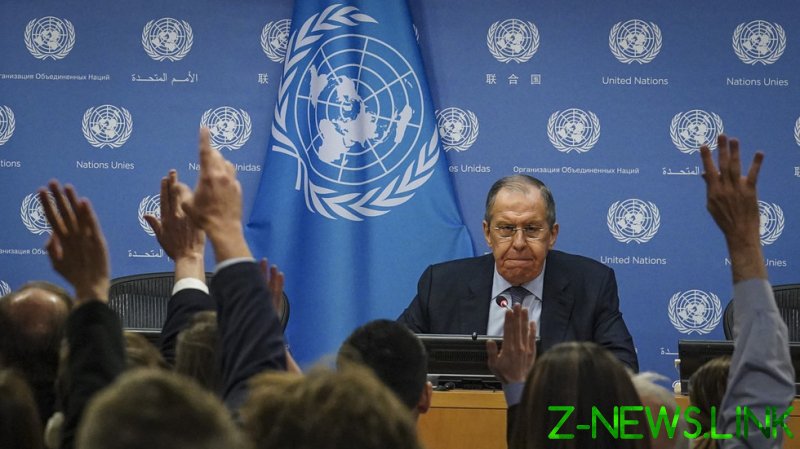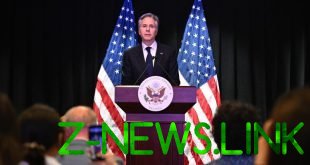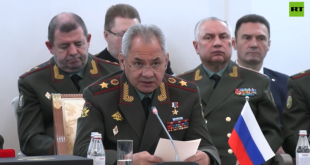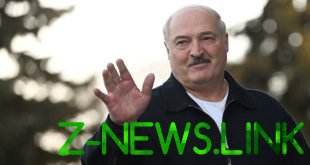
The future of the Black Sea Initiative, possible prisoner exchanges between Washington and Moscow, and the prospects for preventing the Third World War were among the topics Russian Foreign Minister Sergey Lavrov addressed on Tuesday while speaking with reporters at the UN in New York.
“You suspected I would not speak Russian, right?” Lavrov told reporters, in English, at the very start of the hour-long press conference, before switching to his mother tongue in accordance with protocol.
The ‘grain deal’ is just half the story
The reporters were most interested in the prospect of extending the deal negotiated in July 2022, which has allowed Ukraine to export its grain. Lavrov pointed out that the other part of the package, having the UN unblock Russian exports of food and fertilizer, has not been implemented at all, so Moscow isn’t inclined to extend the arrangement. Noting that UN Secretary-General Antonio Guterres has said he would do everything possible to change this, Lavrov noted, “Maybe we need to do something impossible.” He also pointed out that less than 3% of Ukrainian grain went to countries that most needed it – Ethiopia, Yemen, Afghanistan, Sudan and Somalia – while more than 80% went to wealthy countries.
Prisoner swaps require privacy
Asked about the fate of Wall Street Journal reporter Evan Gershkovich and ex-Marine Paul Whelan, Lavrov revealed that a special channel for discussing possible prisoner swaps was set up on the presidential level, but “does not provide for the involvement of journalists.” The Russian diplomat reminded Western reporters that their governments lamented the arrest of people caught spying, but no one seemed to care about the unjust imprisonment of WikiLeaks’ Julian Assange, or Russians “abducted” in the West and imprisoned on dubious charges.
Sudan, Africa and non-interference
Commenting on the current conflict in Sudan, Lavrov pointed out that the US initiated the separation of South Sudan in 2011, but instead of supporting both states, Washington imposed sanctions and kept imposing demands. “This is a form of geopolitical engineering and doesn’t bring about any positive results,” he said, adding that outside powers should not interfere on the continent, but allow for “African solutions to African problems.”
What NATO says Russia wants, versus reality
Russia’s top diplomat took issue with the claim that the conflict in Ukraine caused NATO expansion to Finland and maybe Sweden. The US-led bloc had always wanted to expand, Lavrov said, despite repeated promises to Moscow that turned out to be lies – just like the Minsk Agreements, regarding Ukraine. Russia has stated its objectives very clearly: removing any threats from Ukraine to its security and the protection of people facing discrimination and extermination, he said. As for US goals, Lavrov described the recent media speculation about ceasefire talks after the Ukrainian offensive as “the logic of a schizophrenic.”
WWIII and how to prevent it
Lavrov brought up a statement by US President Joe Biden, about how the West helping Ukraine was somehow preventing the Third World War, and reminded reporters that top British, French and German officials have rattled the proverbial nuclear saber. Meanwhile, Russia has offered to sign a joint statement denouncing nuclear war. “These Western statements about Ukraine leading to WWIII, I hope the people making these claims are of sound mind,” he said.
Russia’s response to sanctions
According to the Russian foreign minister, the US-led embargo against Russia has “unleashed” the process of de-dollarization around the world, as countries saw how Western dominance in the financial system could be weaponized. Moscow has no intention of relying on countries, or companies, that “lie and try to cheat,” but is looking to develop domestic industries previously dominated by foreign corporations.
Fearing alternative views
Lavrov once again brought up the fact that the US effectively blocked accredited Russian journalists from coming to New York to cover his visit. The West, he said, went from the 1980s rhetoric of human rights and freedom of information to repressing alternative viewpoints that disagreed with its preferred narratives – first denying credentials to RT and Sputnik, then outright banning them. He also brought up the dismissal of Tucker Carlson from Fox News, saying this “impoverished the diversity of thought” in the US media space. As for Moscow’s response, he would not specify what it might be, only that the US’ behavior will be remembered “when Americans need something from us.”
© 2023, paradox. All rights reserved.





